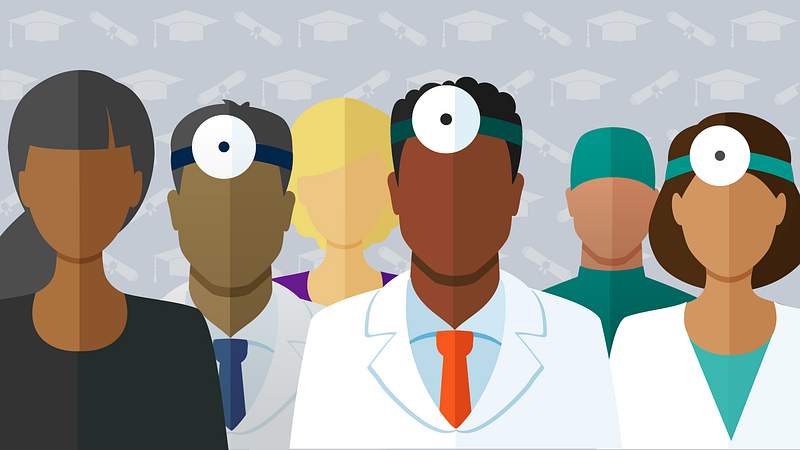
March 13, 2020. The dreadful day. But what were you doing on March 12? There’s a good chance you were out partying with your friends, getting a last taste of normalcy. Where was I, you ask? I was in the Science Center, taking an organic chemistry exam until 11 p.m. and then writing two essays afterward.
It is now March 13, 2020. Campus is emptying, and I have decided to stay an extra day to get in some extra hours at COCVAC, where I volunteer as an EMT. As I responded to a call at the local nursing home, a nurse asked me and my partners to put on a mask. That was the first time I put on a mask. Little did I know that I would not be able to return to my favorite extracurricular activity for over a year.
Fast forward to one month later. I am now as settled as one can be into my four remote classes and two remote labs, taking them from the same place I did all my homework in high school. All health-related summer internships and shadowing opportunities have been canceled and I’m feeling frustrated.
It is now one year later, and I think that we have all mostly adjusted to this new way of life. We have all experienced the feelings of loss and despair COVID-19 has brought with it, whether it be for people or for experiences. I am very fortunate that all of my friends and family have remained in good health during these scary times. Yet, I mourn the loss of my abroad experience, the lab skills I will never get to learn, and the clinical and volunteer hours I will never be able to make up.
While grad schools, including medical schools, seem to be understanding, I am upset with what the pandemic has taken from me academically. I know I will never get the chance to go abroad for a semester and dramatically improve my Spanish language skills, but this seems to be something the pandemic has taken from many of my peers. As a pre-med student, I have lost much more.
I have now had three remote labs: half of my Organic Chemistry I lab, half of my anatomy lab, and all of my current biochemistry lab. As a biochem major, I fear that I am now behind my peers, who managed to take these classes with their respective labs before the pandemic, because I have not learned the lab techniques that they have. With my thesis looming, I am anxious that I will be playing catch-up and will have to spend twice the number of hours as others to learn the research skills that I never got the chance to. This fear carries into my post-graduate life: will I need to know these skills for medical school, too?
In addition to adapting to remote labs, I have also had to adopt new studying techniques. It has been a year since I have sat for a closed book three-hour exam with other students. My studying habits have transformed to accommodate the changes my professors have made to their courses’ assessments. I would actually argue that I understand more of my course material now that I have experienced open book exams, mostly likely due to less brute short-term memorization and more learning the material to commit to my long-term memory, yet this change still scares me in the long run. I am less than one year away from taking my MCAT. Will I remember how to study for hours at a time according to a regimented study plan? Will I have the patience to sit silently in a room full of others for eight hours? Will I be able to focus in this room when I have taken all of my exams in the last year in the comfort of my own room with no distractions? Although I have asked myself these questions for a while now, the pandemic has only accentuated my concerns.
Yet, aside from my studies, my biggest worries are the experiences and hours I have missed out on. While many pre-health students are in the same boat, it is so difficult seeing my friends get finance, computer science, and government internships for the summer. Pre-health programs are already hard to come by, incredibly competitive, and oftentimes do not pay a penny, and COVID-19 has only exacerbated these challenges. While other internships can adapt to remote work or make office accommodations, hospitals and doctors’ offices are not allowing extra personnel in. Although this approach is necessary for safety reasons, it really is not possible to shadow doctors or use my EMT certification remotely. And yes, as I mentioned before, med schools are being forgiving for applicants, but this accommodation means that I have less material to work with when writing my personal statement and answering other application questions.
The takeaway here is not that pre-health students have it any worse than students on other tracks. All students are facing the struggles that have accompanied this trying year, and everyone has experienced something different. Know that I do not speak for all pre-med students; I just wanted to share my personal experience and bring awareness to these challenges — you are not alone in your struggle. This year has caused me to adapt, overcome, and achieve things I never could have imagined. But I am stronger for it. It is vital that we stay positive (and test negative). Do not let the COVID-19 fatigue set in — now more than ever it is so important to wear masks and social distance!
















